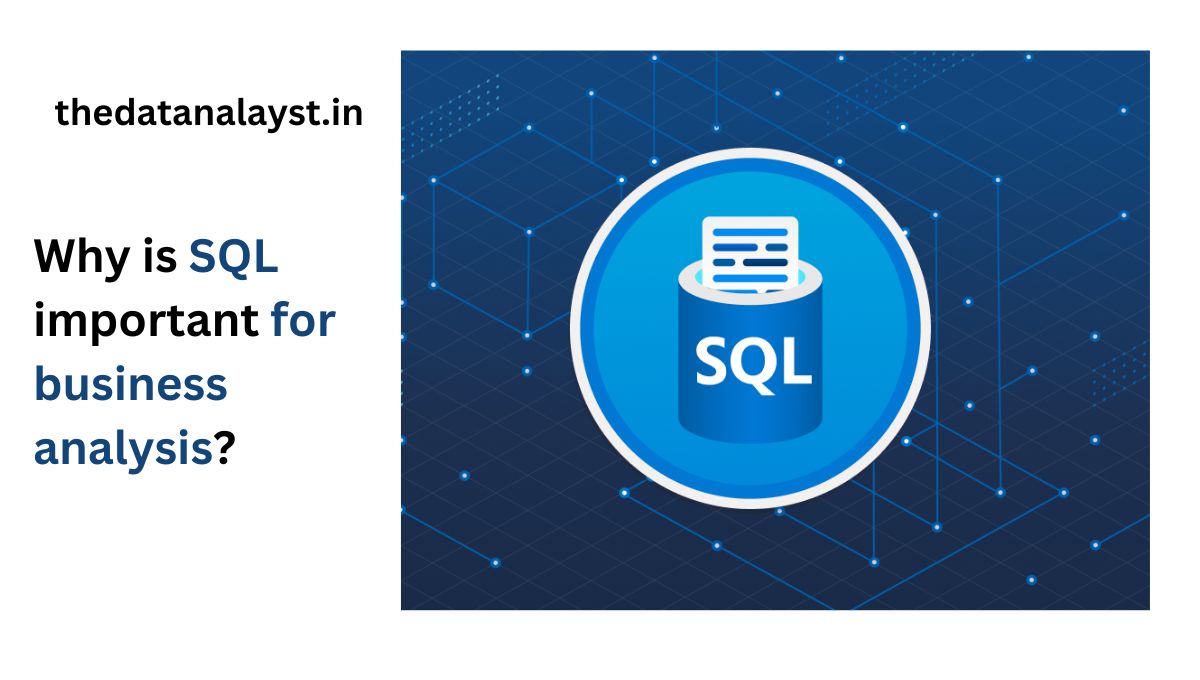In today’s data-driven world, businesses are increasingly relying on data-driven insights to make informed decisions. This is where Business Intelligence (BI) Analysts come into play.
In this guide, we’ll cover everything you need to know, from what a BI Analyst does, the skills and qualifications required, to steps you can take to break into the field.
What does a Business Intelligence Analyst do ?

A Business Intelligence Analyst is a professional who uses data analysis tools and techniques to generate insights from data so that important decisions can be taken on these insights. They work closely with various departments within an organization to understand their specific needs and provide tailored data solutions. BI Analysts typically perform the following tasks:
- Data collection and cleaning: Gathering data from various sources, including databases, spreadsheets, and web applications, and ensuring its accuracy and consistency.
- Data analysis: Using statistical methods and data visualization tools to identify patterns, trends, and anomalies within the data.
- Reporting: Creating dashboards, reports, and visualizations to communicate findings to stakeholders.
- Data modeling: Developing data models to represent complex relationships between different data elements.
Why Become a Business Intelligence Analyst?
Here are reasons why you should become a business analyst.
- High Demand: According to the Bureau of Labor Statistics, the demand for BI Analysts is projected to grow by 11% through 2029, much faster than the average for all occupations.
- Competitive Salary: BI Analysts can earn a median salary of $70,000 to $90,000 annually, with senior roles earning over $120,000.
- Career Growth: A role in BI can lead to advanced careers in data science, analytics, and management positions.
How to Become a Business Intelligence Analyst

Although no one path suits all but here is a roadmap to become a business analyst
- Build a Strong Educational Foundation
- If you are studying then start with a relevant degree in fields like data science, business or analytics.
- Learn Data Analysis Tools and Technologies
- Get Hands-On Experience
- Take up internships, freelance projects, or part-time roles to gain practical experience.
- If you do not get internships or freelance projects , start doing guided projects from YouTube, after that you can move forward to unguided projects and you can use Kaggle for that.
- Earn Certifications
- Enroll in BI certifications to validate your skills.
- One of the best Business Intelligence certificate is from Google – Google Business Intelligence Certificate.
- Build a Professional Portfolio
- Showcase your work on platforms like GitHub or a personal website.
- If possible make your own portfolio website and show case all your projects on that so can when a recruiter goes there , they can see your work.
- Network and Apply for BI Positions
- Use LinkedIn to connect with BI professionals.
- Tailor your resume to highlight your analytical and technical expertise.
- Try to include relevant projects in your resume as per particular job.
Career Path of Business Intelligence Analyst
Here is very common career path of a business intelligence analyst
1 – Business Analyst / Business Intelligence Analyst:
- Responsibilities: Collect, clean, and prepare data for analysis. Perform basic data analysis and create simple reports.
- Salary: $60,000 – $80,000 per year (average in the US)
2 – Sr. Business Intelligence Analyst:
- Responsibilities: Lead complex data analysis projects, develop advanced data models, and provide strategic guidance to organizations.
- Salary: $110,000 – $150,000 per year (average in the US)
3- Business Intelligence Manager:
- Responsibilities: Manage the overall BI function, oversee projects, and ensure alignment with business goals.
- Salary: $130,000 – $180,000 per year (average in the US)
4 – Director of Business Intelligence:
- Responsibilities: Develop and implement the organization’s BI strategy, manage budgets, and lead a team of BI professionals.
- Salary: $180,000 – $250,000 per year (average in the US)
Key Points To Remember
- Becoming a BI Analyst requires a combination of education, technical skills, and business acumen.
- Start by obtaining a relevant degree, mastering key tools like SQL, and gaining practical experience.
- Networking, continuous learning, and building a strong professional portfolio are essential for landing your first role.
Conclusion
Business Intelligence Analysts are in high demand as companies strive to harness data to drive strategic decisions. By following the steps outlined in this guide, you’ll be well on your way to a rewarding career in BI.
Remember, the field is constantly evolving, so staying updated with the latest trends and tools is crucial for long-term success.
FAQ Business Intelligence Analyst
Is it difficult to become a BI Analyst?
While becoming a BI Analyst requires a combination of technical and soft skills, it is definitely achievable with dedication and hard work.
What is the future of BI Analysts?
The demand for BI Analysts is expected to continue growing as businesses increasingly rely on data-driven insights.
Do I need a degree to become a Business Intelligence Analyst?
A degree in a relevant field like Business, Computer Science, or Data Science is beneficial, but not mandatory. Many professionals enter the field through certifications and hands-on experience.
What is the difference between a BI Analyst and a Data Analyst
While both roles focus on data analysis, a BI Analyst is more focused on strategic decision-making using business data, whereas a Data Analyst might work on more general data trends.

